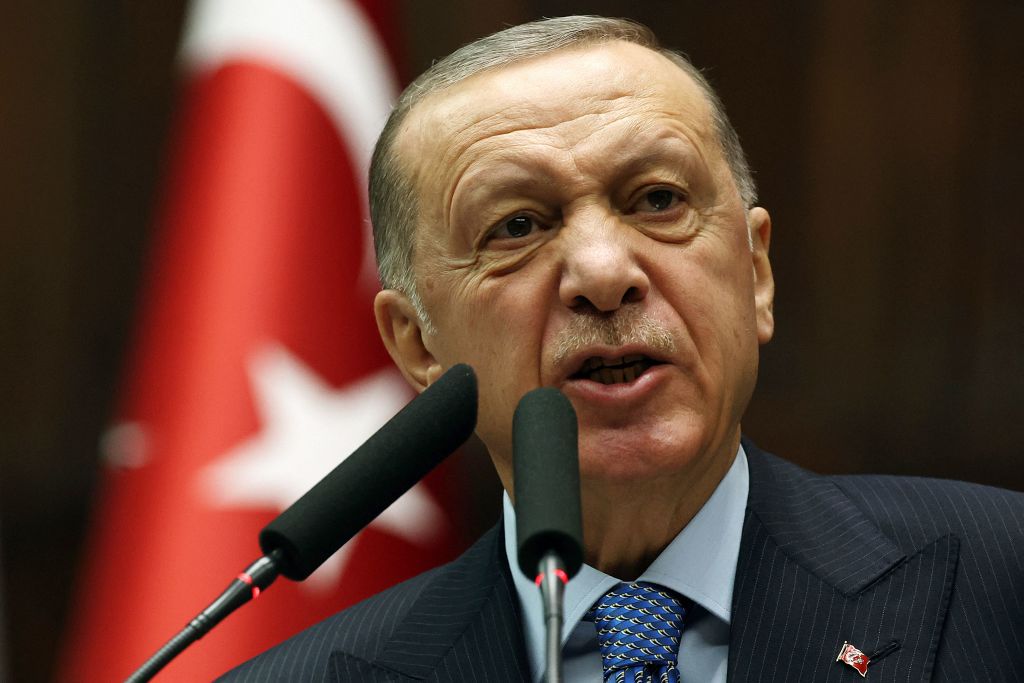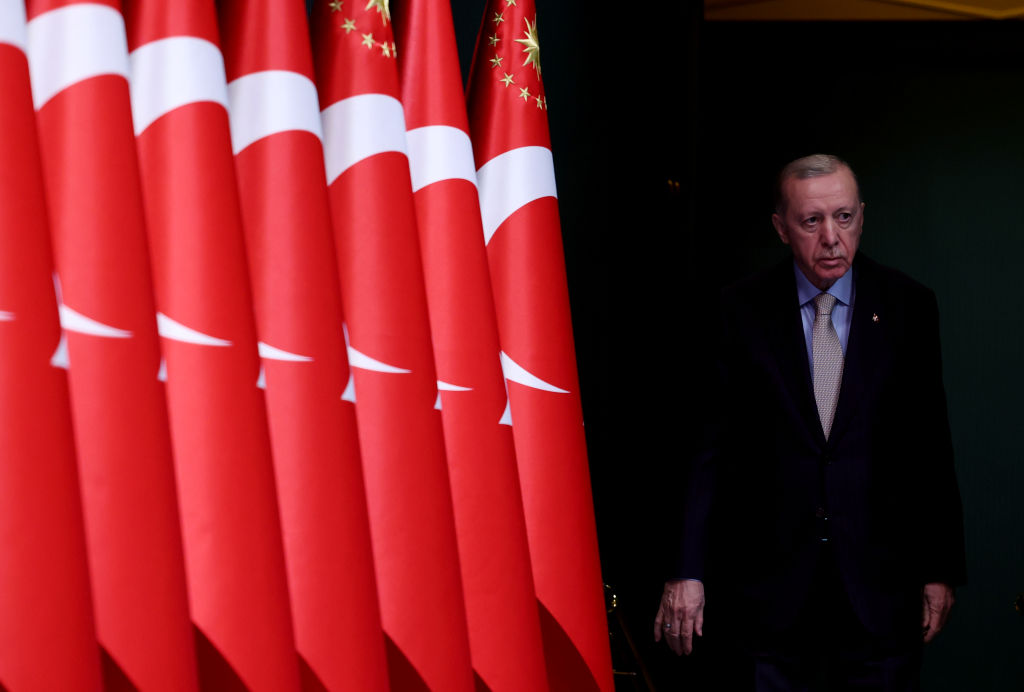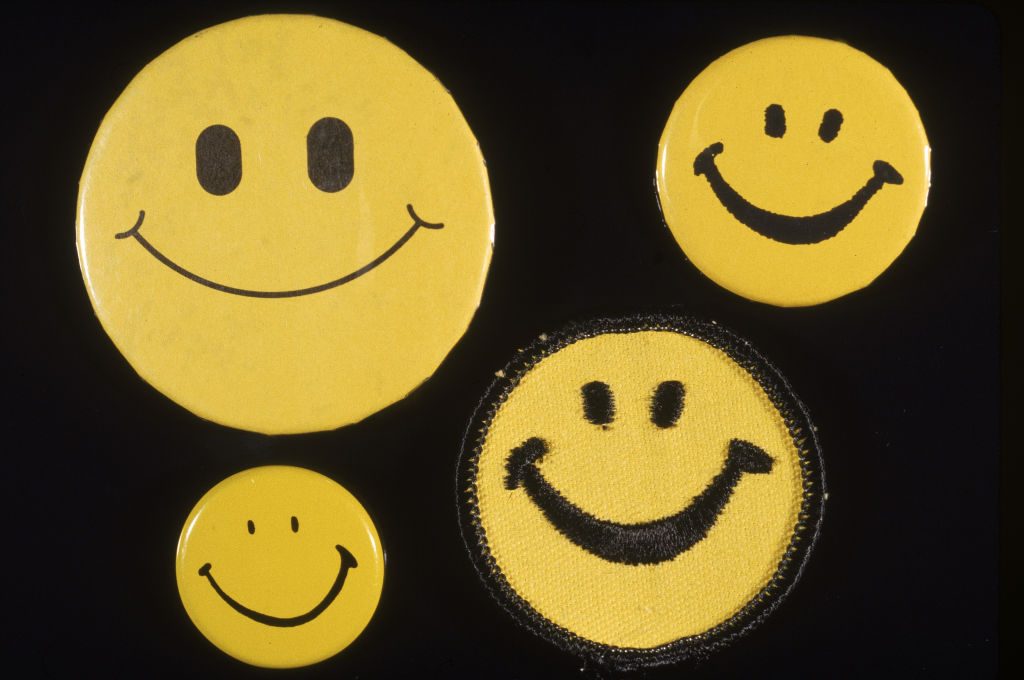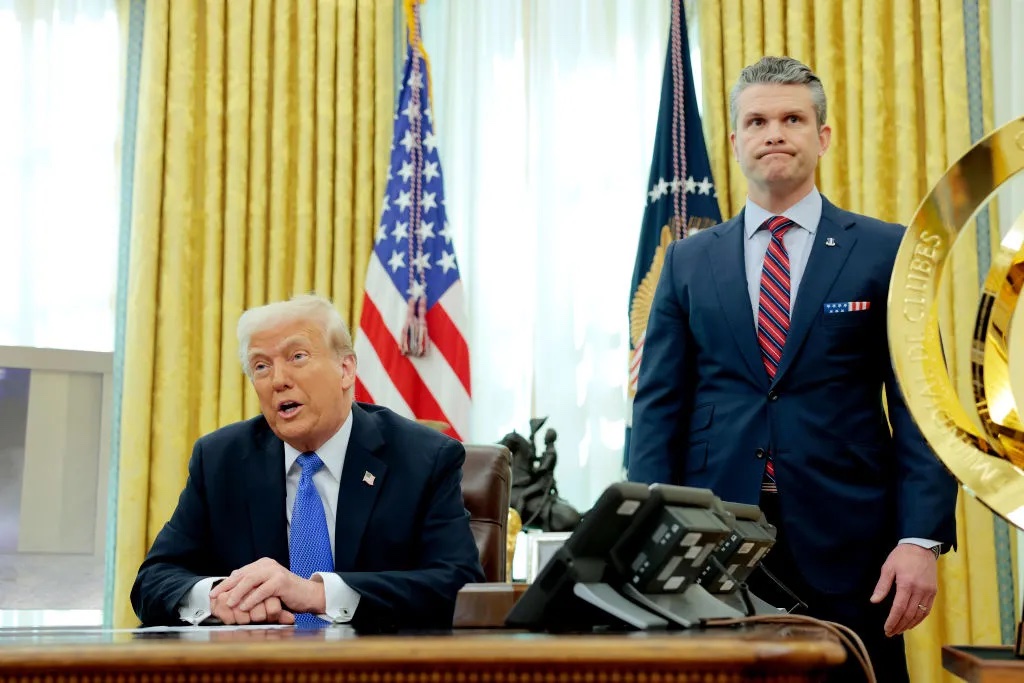Sweden and Finland officially applied to join NATO last May, overturning their long-standing policies of neutrality. If their membership goes through, it will be one of the most consequential accessions in NATO history, bringing two technologically advanced militaries right on Russia’s doorstep into the fold.
But as the eight-month mark approaches, neither nation has received the unanimous support from the other members that it needs.
To date, twenty-eight members of the alliance have approved the Scandinavian nations’ memberships, with Hungary and Turkey as the two holdouts. Hungary has indicated it will vote to accept the accession in early 2023, which will leave NATO’s most undemocratic and troublesome member, Turkey, as the last hurdle.
Turkey — or Türkiye, per its recent name change — has been a roadblock from the start of the accession process. President Recep Tayyip Erdogan, the country’s strongman, has seized the opportunity to extract concessions and play to his domestic audience. He has long been a thorn in the side of the alliance, having become increasingly autocratic in his twenty-year rule and abandoning his country’s long-held policy of secularism.
For all intents and purposes, Turkey is no longer a free country, with severe restrictions on the press, assembly, and speech. Erdogan has steadily consolidated his power, shifting his government from a parliamentary to a presidential system. After the failed 2016 coup attempt, he purged opposition from the judiciary and cracked down on civil society. One of his likely opponents in this year’s June elections was recently arrested for describing government officials as fools.
Erdogan has pursued a foreign policy often directly at odds with US and NATO goals. While Turkey has provided military equipment to Ukraine and helped broker a grain shipment deal, it refused to implement sanctions on Russia after its invasion of Ukraine. This double-dealing has benefitted Turkey massively, with cheaper energy, potential plans for Russian gas infrastructure, and closer trade links between Ankara and Moscow. Of course, energy sales on the Turkish market have also helped fund Russia’s war.
Relations between Erdogan’s Turkey and the United States have been as bad as one would expect. Though they have a long history, they have worsened in recent years. Many in Turkey, including members of the government, have cast blame on Washington for the 2016 coup attempt. The US has vehemently denied this, and there is no evidence to support Turkish claims. Ankara maintains that the coup was orchestrated by the followers of Fethullah Gülen, who currently resides in the US, though Washington has not determined that there is sufficient evidence to warrant extraditing him.
Importantly, Erdogan will be facing a difficult reelection in June. Though Turkish elections have not been free and fair in years, one can only fudge the votes so much without provoking popular backlash. Erdogan’s popularity has taken a hit from both severe inflation due to failed monetary policy and declining standards of living. He wants to play to the anti-Western, anti-US sentiment that much of his country shares, but he also wants to project himself as a strong actor on the world stage.
This is where the question of Sweden and Finland joining NATO comes in. For Erdogan, it’s the perfect opportunity. The top complaint is over the Nordic countries’ — primarily Sweden’s — relationship with Turkish Kurds and Gülenists. The Kurdistan Workers Party (PKK) has waged war on the Turkish government for decades, and is designated as a terrorist organization by Turkey, the US, and the EU. Turkey also opposes the Kurdish People’s Defense Units (YPG) fighting in Syria alongside the US.
Erdogan has asserted that the Nordic nations have given sanctuary to terrorists — both Kurds and Gülenists — and refused to allow either one into NATO until they take action to rectify the situation. There is no evidence that the Swedish or Finnish government has provided a safe haven for terrorists, and both have accepted the designation of the PKK as a terrorist organization. Sweden has supported the YPG, which has links to the PKK, but only to fight the Islamic State. Turkey, by contrast, has often hindered the fight against ISIS.
The Trilateral Memorandum, signed by Turkey, Finland, and Sweden in June 2022, set out the Nordic countries’ commitments to allay Turkish concerns. Sweden and Finland promised to “extend their full support” to Turkey “against threats to its national security” and “will not provide support to the YPG/PYD” or the Gülenists. They also confirmed their commitment to “unwavering solidarity and cooperation in the fight against terrorism, in all its forms and manifestations”. Both have revised or promised to revise their terror laws, and to lift their arms embargo on Turkey, which was another key demand of Erdogan. In return, Turkey “confirms its long-standing support for NATO’s Open Door policy,” and agreed to invite both countries to join NATO.
Those promises have been maintained by Sweden and Finland, both of which rescinded their embargoes on arms exports, and Sweden has extradited individuals wanted by Turkey. Stockholm has even gone further, with constitutional alterations. NATO Secretary General Jens Stoltenberg recently said that “the agreement has been followed through.”
Turkey, however, has continued to obstruct their accession, making ever more unrealistic demands. Erdogan recently submitted a list of thirty-three individuals he wanted extradited to Turkey, some of whom lacked justification for extradition. Sweden’s Supreme Court ruled in December, for example, that the extradition of Bulent Kenes, a Turkish journalist, was not possible, in part, because of “the political nature of his case.” In response, Turkey threw cold water on hopes for an accession in the near future, saying that despite progress, Sweden had a long way to go. On January 16, Erdogan said that the Nordic nations would “have to hand more than 100, around 130 of these terrorists to us” in order for them to get Ankara’s approval.
Finland, for its part, has made clear that it will join NATO when Sweden does, and no sooner. Sweden’s Prime Minister, Ulf Kristersson, referencing the unrealistic demands that Turkey is making, said on January 9 that, “Turkey both confirms that we did what we said we would do, but they also say they want things we can’t and don’t want to give them.” For Erdogan, this is not much of a contradiction: the demands were never serious and they were never made in good faith.
Erdogan knows that it would be a foreign policy coup for Russia if Sweden and Finland fail to join NATO, and that is the last thing Washington wants. This is what Turkey is playing for: bolstering Erdogan’s image and forcing concessions — it is purely transactional. Ankara is not interested in acting as a team player, as a member of an alliance. Erdogan has an election to look forward to, and he is banking on voters appreciating his standing up to the West. Sweden and Finland will not see NATO membership until Erdogan thinks obstructing no longer benefits him.
The underlying tension — even outright hostility — between Turkey and its NATO allies is the logical result of the fact that Ankara shares very little in the way of values with any of them. The North Atlantic Treaty affirms members “are determined to safeguard the freedom, common heritage and civilization of their peoples, founded on the principles of democracy, individual liberty and the rule of law.” Of course, fundamental democratic principles and freedoms, human rights, and the rule of law are not respected in Turkey. Ankara does not even respect the sovereignty of its treaty allies, namely Greece.
If Erdogan refuses to allow Sweden and Finland into the alliance, putative action will be necessary. Though there is no prescribed way to kick out or suspend a member from the alliance, both should be part of the discussion until Ankara changes its ways. If nothing else, pressure, potentially even economic pressure, will need to be applied, and given Turkey’s current economic state, that would be very costly for Erdogan. The alternative is to have a house divided against itself at the very time that threats are rising around the globe.

























